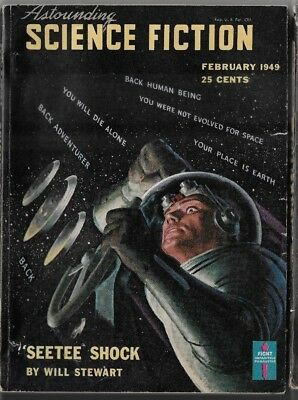In a ten-man team exploring one part of the Galaxy, Nielson is the captain because he is the psychotechnologist and he does indeed say:
"'...for the love of Cosmos...'" (p. 170)
- so we are finding reasons to include this story in the Psychotechnic History. At Alpha Centauri, there is a non-human civilization with a very different science so that is what the STL generation ship in "The Troublemakers" would have encountered on arrival at its destination.
Crew:
Krishni Ramanachandra, physicist-chemist;
Morley, planetographer;
Duncan, biologist;
Schumacher, one of three general assistants;
Chai-Cou, mate;
Rosenstein, assistant;
Cetewayo, Afro-Venusian chief engineer;
Themistocles Kiarios, assistant;
Ivanov, assistant.
The story seems to be set during a period of early interstellar exploration, not of established Galactic civilization.

4 comments:
Kaor, Paul!
At least "Entity" is more plausibly Psychotechnic than "The Chapter Ends."
Ad astra! Sean
Relevant historical note: back in the medieval period, swearing was much heavier on blasphemy than it is now.
Note that English soldiers in France during the 100 Years War were known locally as "Goddamns", from their most frequent utterance.
Then, starting in the early modern period, and with English, swearing gradually switched over to scatology and obscenity.
French kept with the blasphemy much longer, particularly rural and out-of-the-way parts.
(Within living memory, most French-Canadian swearing was religious -- things like "Tabernac!")
People swear for effect; it's a breaking of taboos. In medieval English, equivalents of "f**k" had much less impact than they did later -- they were the small change of swearing, but blasphemy was the real deal.
Read Chaucer's "The Miller's Tale" and you'll see what I mean -- remember that that was -court- poetry, meant to be recited aloud in the presence of the King and Queen.
Kaor, Mr. Stirling!
I remembered, and I agree. AND of how both Dante and Chaucer were much more offended by blasphemy and sacrilege than mere obscenity and scatology.
Ad astra! Sean
Post a Comment